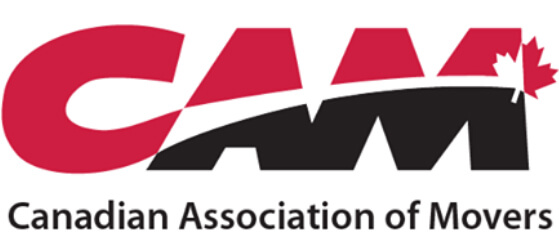What is the difference between a mover and a broker?
More than likely, you began your search for a mover using the internet. You may have searched for keywords like ‘mover near me,’ or you went to a social media site to ask for a recommendation. Once you created that digital footprint, the data miners did their job. Now you’ve been bombarded with ads for movers, moving companies, moving solutions, and even moving matchmakers! Most of these ‘companies’ are NOT movers!
You just need a mover – but don’t know whom to talk to and whom to trust! Working directly with a professional mover yields the best results, but how do you dodge the brokers and even worse the criminals pretending to be movers and brokers??
Who are moving brokers?
Brokers are typically lead generators and marketers who do not necessarily have experience in the moving industry but use their social media ad skills to attract consumers to service and sell those leads to companies willing to do the work. You may not necessarily know who the company is that is coming to perform the work, if the company is legitimate or insured, or if the people performing your move have been vetted in any way.
The broker does not perform the physical work and is not responsible for the work performed. They find a customer and forward their business to a service-provider for a fee. Usually, a broker will collect a non-refundable deposit to reserve a date, which pays them and turns your actual move over to the next entity.
Since brokers are better at advertising than moving, they often capture the consumer’s attention on the internet before a mover does, and they make their living selling your job to the people who do the work.
Since brokers (marketers) are not movers who can, to some degree, be background-checked, it is easier for fraud to occur in this arena.
Are brokers ever valuable?
The few truly valuable moving brokers are individuals with a hands-on history in the moving industry, that monetize their knowledge and experience by helping people find the right mover and other related trusted resources. The benefit may be if you are planning a move remotely or are pressed for time.
There are simple ways to make sure you are working with a legitimate moving broker. The legitimate moving broker will:
- provide personal credentials, a name, address/physical location, personal contact information such as cell and email.
- usually come personally recommended or can provide personal referrals.
- be able to provide their personal history and prior experience in the moving industry. They are proud of the work they have done and usually will have a website or social media presence with pictures and details.
- only shop your move to reputable and insured movers, like CAM members, in their trusted, established network.
- disclose up front that they are a broker and should be transparent reviewing and explaining quotes.
Who are the real movers or moving companies?
Legitimate full-service movers are professional and insured companies that provide all the necessary trained labor, trucks, and proper equipment for a move and can perform the physical task of packing and moving the consumer. Real professional movers…
- will pack and load your personal items. For example, some portable container companies like PODS, may not be licensed movers. They usually advertise as a moving ‘solution’ or ‘alternative’ to movers because they are not a moving company and do not do the packing and loading – you do. They are not authorized to handle your belongings; they just handle the container. However, some full-service movers use portable containers and can still offer professional labor since they are a moving company.
- are insured for the cargo they carry as a mover.
- have some controls on them – through provincial consumer protection legislation and regulations for the carriage of household goods, or membership in the Better Business Bureau and/or Canadian Association of Movers. In the event something goes wrong, the consumer can contact these authorities for aid, but will need to provide the company’s contact details, like their address. If the consumer chooses a broker or ‘mover’ that does not have a business address, they may not exist on paper, and there is no one to turn to for recourse or assistance. It is hard to penalize a business that does not exist.
- have physical locations, trucks, and warehouses, so you know exactly where your goods will be located throughout the moving process or if you want to show up for a visit.
- have a liability in the process. A legitimate mover is responsible for your goods at a minimum of $1.32 per kilogram ($.60 per pound) per item. They will also offer increased liability (Full Replacement) options on your goods. Brokers, even the good ones, have no liability for what happens during your move. Even portable container companies are not responsible for the handling in the loading process since it is not performed by them.
- have a company history, real photos, and trucks, staff and office to prove it. Look past stock photos and look for the ‘real’ movers!
What’s my best course of action?
Having some basic knowledge of the difference between movers and brokers helps narrow the search for your ideal professional mover! You can eliminate many imposters by knowing the right questions to ask and where to verify your mover’s or broker’s credentials.
Remember, a legitimate mover (or broker) will be happy to provide you with the necessary credentials to verify their reliability.
The above information was adapted for Canadian readers. Thanks to Tara Dixon, VP Business Development, Sea Cure Moving, Inc., New Jersey Agent for Bekins Van Lines. Tara is a proud member of the New Jersey Warehouse & Movers Association and a contributor to Movers for Consumers.

